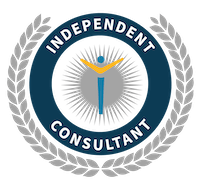You have wisely decided to gather and document your organization’s high-level CRM requirements before engaging CRM vendors and sitting through demonstrations.
This process means interviewing stakeholders and representative end-users, taking voluminous notes (involving a scribe is a good idea), and then consolidating all of this gathered information into a master requirements document and an associated slide presentation. Text, tables, images, and flowcharts typically all come into play.
These requirements are appropriately prioritized through meetings and/or workshops based on the estimated delivery cost versus the estimated business impact.
This “requirements first” method is the right approach, but who will lead the requirements gathering and documentation process?
At first blush, it makes more financial sense to have an internal staff member work on the tasks related to developing your CRM requirements documentation. After all, the total hourly cost of an employee can be as low as a quarter of the hourly rate of an outside consultant.
But should that employee’s total hourly cost be the only component to consider? Typically not. Here are several items to factor into an internal cost calculation.
Time to Market
The internal team member assigned to the CRM requirements gathering and documentation tasks is often an IT department project manager.
However, this person is probably assigned to other projects. One of the other projects may become more mission-critical and, therefore, a higher priority than the CRM requirements gathering project.
This, in turn, results in a delay in the completion of the CRM requirements project. When a delay occurs, it can sometimes be measured in months, not days or weeks. A front-end delay can then ripple into a delay in the entire CRM implementation process.
Presuming that a new CRM system will be implemented to increase revenue and decrease costs, any internal “time to market” delays come at a cost. Pick a number for the monthly cost of not having a CRM system and factor that into the equation.
Frankness of Interviewees
We’ve observed that people will be more forthcoming about their pain points with a third party than with a coworker.
Gathering software requirements is one of the few times you want people to whine and complain. Only then can you understand what needs the most fixing. If complaining is repressed, a complete picture may not emerge.
While difficult to quantify, obtaining only a partial picture of what’s not working has a cost.
Knowing the Right Questions to Ask
If an internal project manager has been involved with CRM projects, they will intuitively know many of the right questions to ask.
Knowing the out-of-the-box capabilities of CRM systems, how other CRM systems at other organizations were configured or customized to address specific business requirements, and knowing what third-party CRM applications are available can all factor into the quality of the interview process.
A comprehensive interview is not as simple as working off of a questions template. There’s an ebb and flow to these types of interviews for which a certain level of experience with CRM systems can lead to more and better information.
One of the bigger interview challenges is to get a person of few words to provide sufficient information. “Leading the witness” can be good when collecting CRM requirements.
Understanding The Level of Effort Required to Deliver Functionality
Business requirements eventually dictate the needed CRM configurations and customizations.
When it comes to prioritizing requirements, there’s an essential factor to consider. That is the cost versus the benefit of developing CRM functionality to address each requirement.
There might be an important business requirement that would be relatively easy to configure in a new CRM system. There might be a less essential requirement that would be expensive to customize in a new CRM system. The latter should be assigned a lower priority level.
Someone with a CRM background usually has a sense of the relative levels of effort for developing various types of functionality. That person may also have resources from whom to get high-level time estimates.
Considering the possible hidden costs and gaps associated with using internal staff to gather and catalog CRM requirements, an informed decision can be made as to whether hiring a third party to perform this work makes financial sense.





